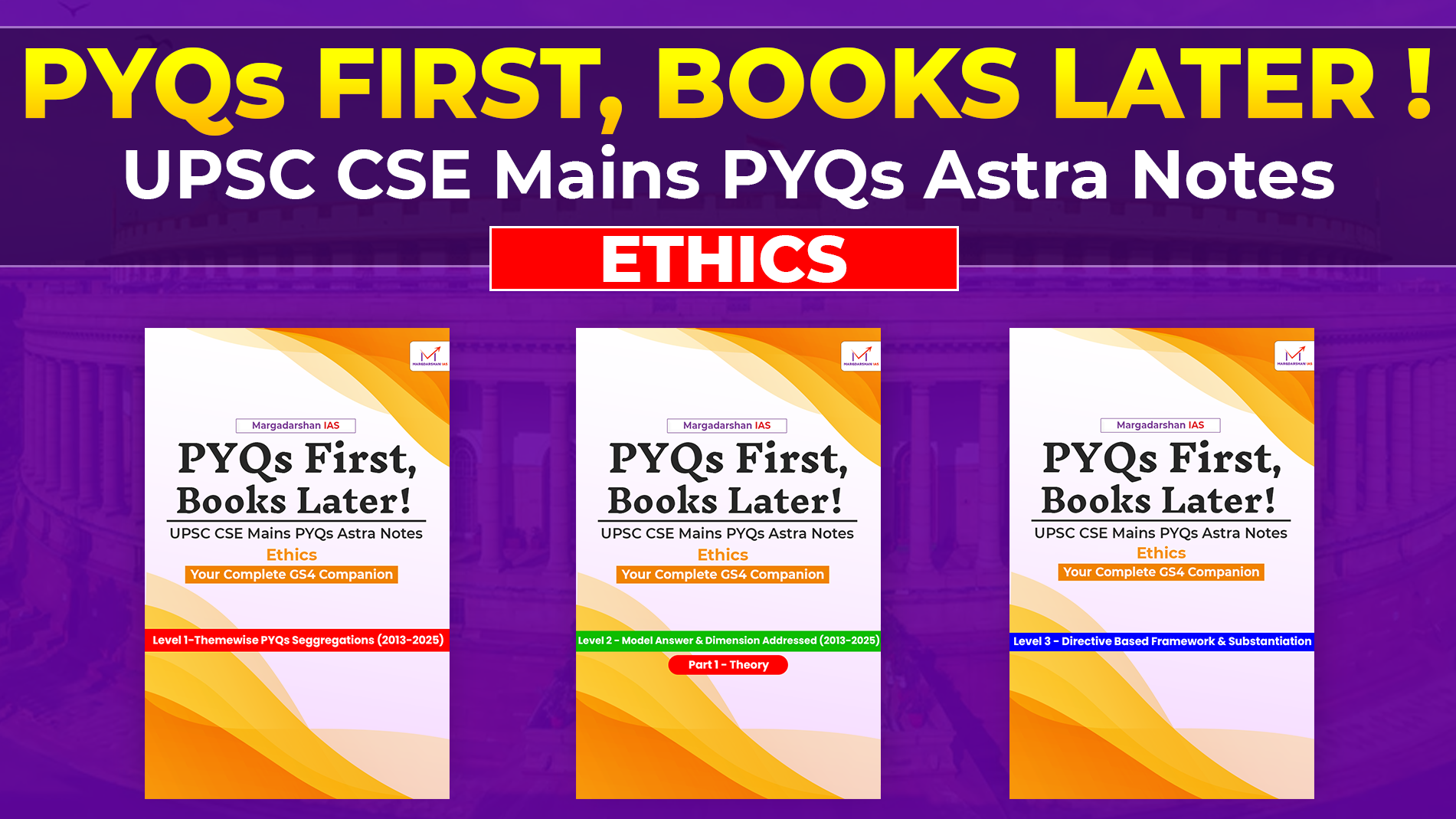
Ethics - UPSC CSE Mains PYQs Astra Notes
Product information
- Number of chapters
- 2 Chapters
- Number of contents
- 7 Contents
PYQs First, Books Later! UPSC CSE Mains PYQs Astra Notes
PYQs First, Books Later!
UPSC CSE Mains PYQs Astra Notes
What is PYQs Astra?
Every serious UPSC aspirant hears this advice: "Solve PYQs." But what if there was a way to not just solve them, but truly decode them like a topper?
That’s exactly what PYQs Astra Notes by Margdarshan IAS offers. It is a carefully designed set of notes based on 12 years of UPSC Mains PYQs analysis (2013–2025). This isn’t a random compilation — it’s a roadmap to understand the examiner’s mindset, the hidden patterns, and the evolving trends.
The biggest strength of PYQs Astra is that it follows the "PYQs first, books later" approach. Instead of getting lost in endless book reading, aspirants first understand what UPSC repeatedly asks. Only then do they fill in gaps through books and standard sources. This approach saves time, sharpens focus, and directly targets high-probability areas.
Four Levels of Preparation
-
Level 1: Theme-wise classification of questions to understand recurring focus areas.
-
Level 2: Micro-theme breakdowns with background insights and why a question was asked.
-
Level 3: Model frameworks with ready introductions, conclusions, and multi-dimensional points — so aspirants learn how to structure.
-
Level 4: Advanced answer writing toolkit — diagrams, case studies, data points, interlinkages across GS papers, and value additions.
Rather than forcing aspirants to blindly copy model answers, PYQs Astra builds the skill to think and present like a topper.
PYQs First, Books Later!
UPSC CSE Mains PYQs Notes
PYQs Astra for Ethics — Your Complete GS4 Companion
Ethics looks simple, but writing thoughtful, practical answers in the exam is a real test. Most aspirants either get stuck in theory or feel lost in case studies. That’s why PYQs Astra Notes for Ethics is designed to handhold you, step by step.
Level 1: Thematic Breakdown
We’ve gone deep into 12 years of UPSC Mains questions (2013–2025) and sorted them into Section A (theory) and Section B (case studies). Each question is broken down into Subject > Theme > Micro-theme, and we show you exactly how many times each theme has been asked. You immediately see which topics (like attitude, emotional intelligence, or transparency) matter most. This clarity saves huge time and keeps your focus sharp.
Level 2: Model Answers & Practical Frameworks
This is the real game-changer. For every question from the last 11 years, you get a detailed, ready-to-use model answer. But not the boring, textbook kind. These answers cover multiple dimensions — ethical, administrative, social — and include real-life examples (like E. Sreedharan’s integrity or Sudha Murthy’s simplicity), recent events, and even small stories. You also get diagrams and flowcharts to make your answers look sharp and examiner-friendly.
Each answer is structured clearly, so you know exactly how to start, build, and conclude. Case studies are broken down with practical solutions, stakeholder analysis, and ethical frameworks, making them easy to handle in the exam.
In short, PYQs Astra for Ethics doesn’t just give you notes — it trains you to think and write like an officer.
